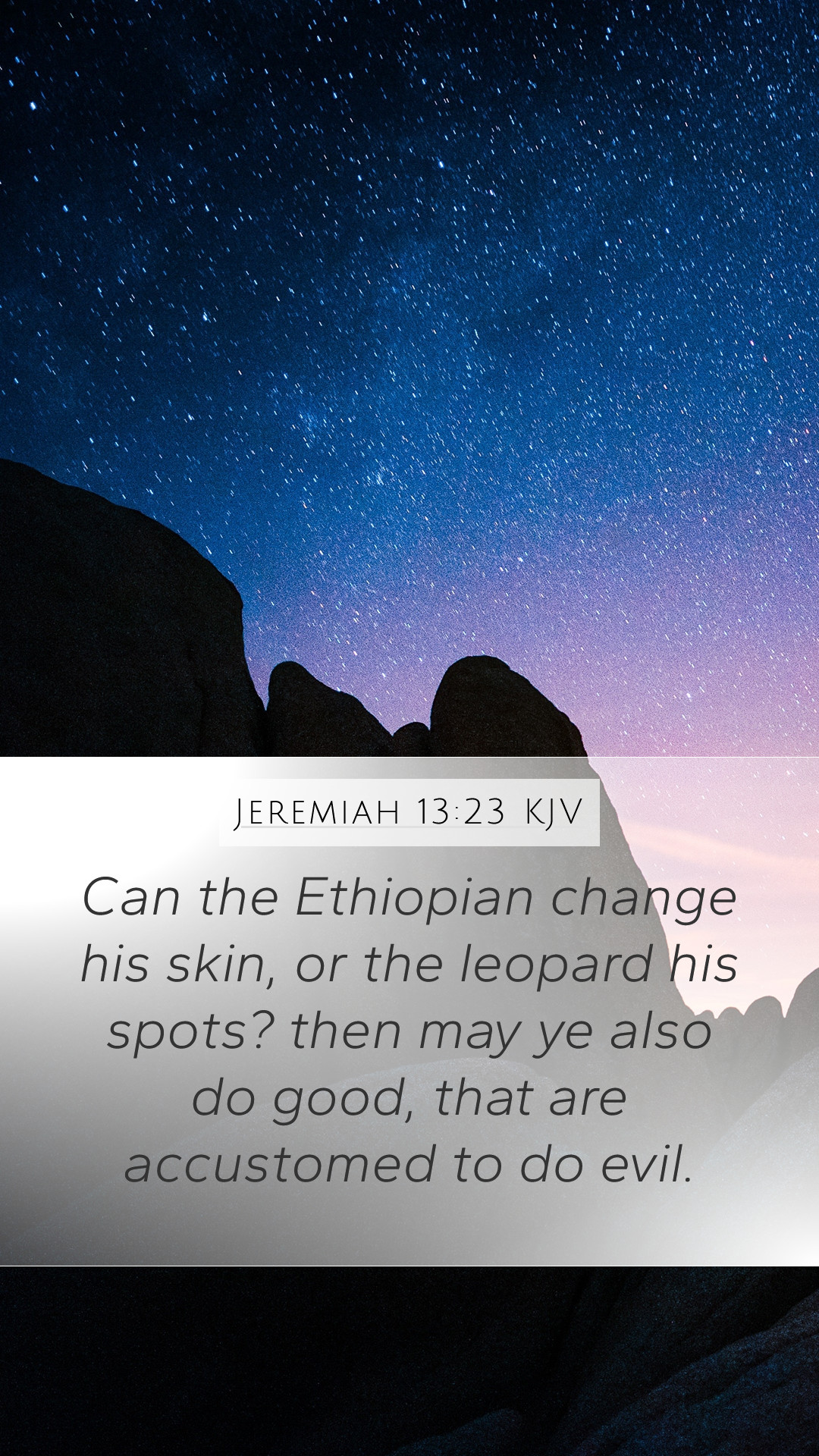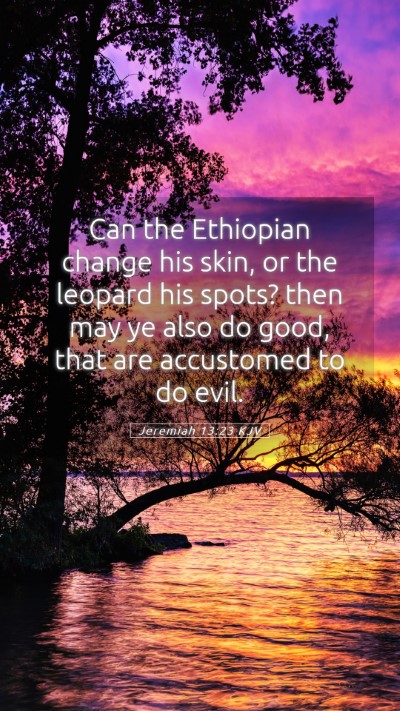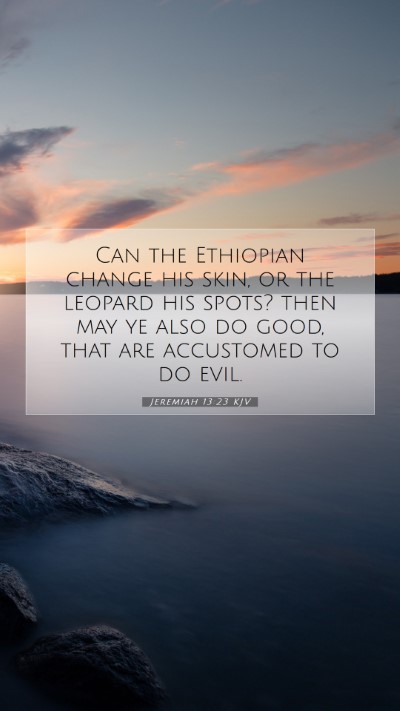Understanding Jeremiah 13:23
Jeremiah 13:23 poses a profound question that delves into the nature of transformation and the power of God in changing one's behavior and essence. The verse states:
"Can the Ethiopian change his skin, or the leopard his spots? Then may ye also do good, that are accustomed to do evil."
Overview of the Verse
This verse serves as a rhetorical question posed by God through the prophet Jeremiah to emphasize the difficulty of changing one's fundamental nature. It indicates that just as an Ethiopian cannot change his dark skin and a leopard cannot change its spots, so too cannot those who are entrenched in evil do good without divine intervention.
Insights from Commentaries
Matthew Henry
Matthew Henry interprets this verse by highlighting the stability of inherent qualities. He suggests that the metaphor used illustrates the deep-rooted nature of sin in the human heart. He emphasizes that human beings, by their sinful nature, are unlikely to initiate their own transformation.
Albert Barnes
Albert Barnes reinforces Henry's thoughts by noting that the question is meant to illustrate the impossibility of moral change without God's enabling help. He draws attention to the idea that God implores individuals to recognize their state and the futility of trying to reform themselves through their own strength.
Adam Clarke
Adam Clarke offers an analytical perspective, asserting that the verse parallels the struggles of those who wish to change their sinful habits. Clarke points out that the verse is not merely a statement about physical attributes but an existential truth regarding moral behavior. He urges that divine grace is necessary for transformation and goodness.
Key Themes and Meanings
- Inherent Nature: The verse reflects the idea that just as certain attributes are immutable, so is human depravity without divine assistance.
- Divine Intervention: It underscores the necessity of God’s grace for anyone to turn from evil to good. Just as nature does not alter itself, so humans need God's intervention to change their moral compass.
- Recognition of Sin: A call for acknowledgment of one’s sinful state is implied, urging individuals to see their need for a savior who can effect change.
- Human Limitations: The passage points to human limitations in achieving righteousness through efforts alone, emphasizing reliance on God's power.
Application in Daily Life
This verse serves as a reminder for individuals struggling with personal vices or sin. The understanding drawn from this verse suggests:
- A need for self-reflection and acknowledgment of personal shortcomings.
- The importance of seeking spiritual assistance and transformation through prayer and reliance on God.
- An understanding that true change comes not from human capability but through divine grace and power.
Cross References
- Romans 7:18 - "For I know that in me (that is, in my flesh) dwelleth no good thing..."
- Ezekiel 36:26 - "A new heart also will I give you, and a new spirit will I put within you..."
- John 15:5 - "I am the vine, ye are the branches: He that abideth in me, and I in him, the same bringeth forth much fruit..."
Conclusion
In conclusion, Jeremiah 13:23 encapsulates a vital lesson in understanding our human condition and spiritual need. Borrowing from the insights of revered commentators, we see that transformation and goodness are not achievable on our own, but through divine intervention. This scripture serves as both a warning and an encouragement, helping believers to understand the gravity of sin and the monumental grace of God available for their change.


